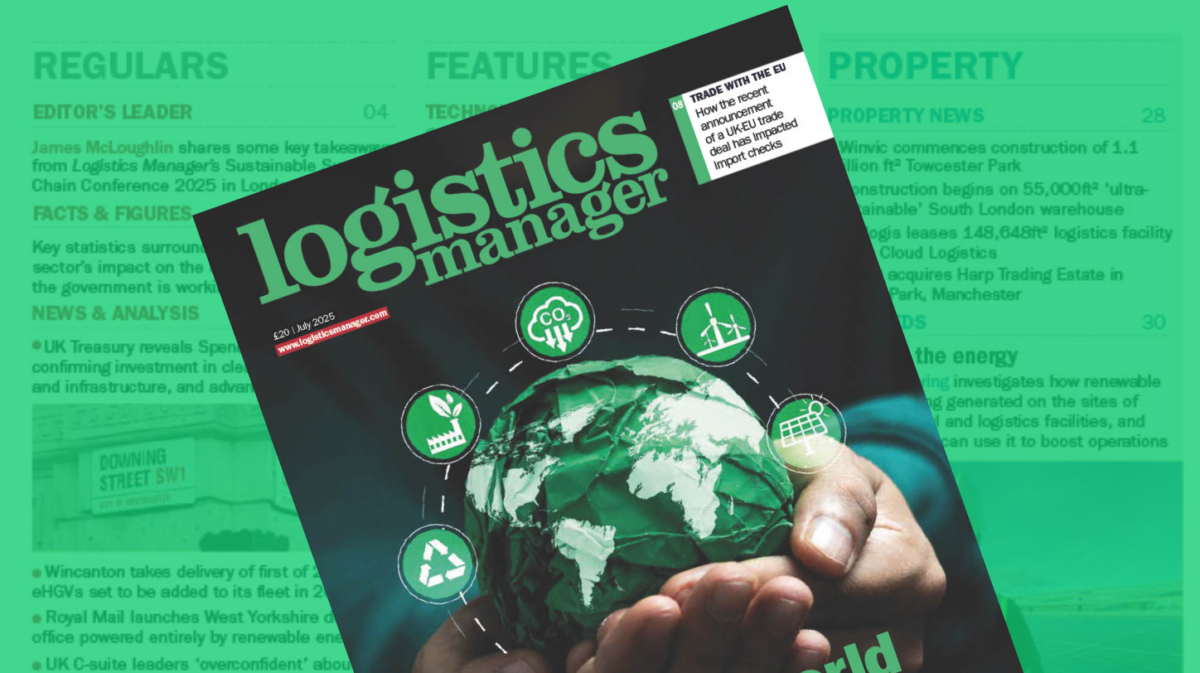Logistics Snapshot: July 2025
A logisztikai ágazat legfrissebb áttekintése rávilágít az Egyesült Királyság ellátási láncait alakító, folyamatban lévő fejleményekre.
Environmental Impact and Government Efforts
Key statistics reveal the UK supply chain’s impact on the environment, emphasizing the strides the government is making toward achieving net-zero emissions. As logistics continues to evolve, understanding these impacts becomes crucial for professionals in the field, as they are often tasked with implementing strategies that not only meet logistics demands but also support global sustainability efforts.
Statisztikák egy pillantással
| Statistic | Érték |
|---|---|
| Carbon emissions from logistics | Estimated 30% of total emissions |
| Reduction target by 2030 | 50% cut in emissions |
| Investment in greener technology | £12 billion by the government |
Trade Developments and Their Effects
The recent trade deal between the UK and the EU has stirred up conversations on how it reshapes logistics operations. Changes to import checks have redefined workflows, emphasizing the importance of adapting to new trading conditions quickly.
For logistics professionals, understanding these changes is vital. Efficient adaptation to regulatory modifications can streamline operations and mitigate disruptions. The impact of such trade agreements resonates through the supply chain, influencing logistics strategies moving forward.
Key Takeaways from the Trade Deal
- New import check protocols.
- Shift in logistics planning due to updated tariffs.
- The importance of compliance in operations.
Kiberbiztonság a logisztikában
With the logistics sector increasingly relying on digital solutions, the threat of cyber attacks remains a pressing concern. In an era of sophisticated cyber threats, ensuring the integrity of supply chains has never been more important. Strategies to bolster cybersecurity are essential in protecting sensitive logistics and shipping data.
James McLoughlin emphasizes that investments in cybersecurity can safeguard against disruptions that have plagued several UK retailers in recent months. Ongoing training and technology updates are key components in crafting robust defenses.
Cybersecurity Best Practices
- Regular system audits and updates.
- Employee training on cyber hygiene.
- Utilizing encryption for sensitive data transmission.
Embracing a Circular Economy
The topic of sustainability takes center stage as James McLoughlin discusses the principles of a circular economy. Implementing circular practices not only reduces waste but also enhances efficiency throughout the supply chain, creating win-win situations for businesses and the environment.
Granting attention to sustainability can significantly influence logistics operations, establishing a path toward a more sustainable future.
Benefits of a Circular Approach
- Reduced waste and improved recycling efforts.
- Cost savings for companies.
- Attracting environmentally-conscious consumers.
Road Transport and Electric Vehicles
As regulations evolve, so does the landscape of road transport logistics. The push for greener logistics solutions is in full swing, with road transport gearing up to meet stringent emissions targets by 2040. Reuben Henry-Fellows examines the landscape and the adaptation required to achieve a more eco-friendly future.
Logistics companies must pivot their strategies to incorporate electric vehicle fleets while still ensuring operational efficiency. Ongoing training and infrastructure upgrades will be vital for successful integration.
Strategic Considerations for Implementation
- Investment in charging infrastructure.
- Training programs for drivers on new vehicle technologies.
- Environmental impact assessments before fleet upgrades.
Renewable Energy in Logistics Facilities
As the logistics sector evolves, the use of renewable energy in large industrial and logistics facilities comes under scrutiny. Kirstie Pickering explores how businesses are turning to these energy solutions to enhance operations. Utilizing renewable energy not only yields cost savings but also boosts the environmental sustainability of logistics facilities.
Property adaptations to support renewable energy infrastructures may become a cornerstone of logistics strategies as firms seek technological advancements to remain competitive.
Benefits of Integrating Renewable Energy
- Reduction in energy costs over time.
- Improved corporate social responsibility reputation.
- Potential for government subsidies and incentives.
Befejezés
The dynamics within the logistics sector reflect a blend of innovation and adaptation to ongoing challenges. Evidently, even the most thorough reviews and feedback can’t replicate the value of personal experience in tackling logistics dilemmas. GetTransport.com provides a comprehensive platform for ordering global cargo transportation at competitive prices.
Readers can confidently navigate their next shipping and logistics challenges with GetTransport.com’s diverse offerings, including moving, freight, and delivery services tailored to meet unique needs. Emphasizing convenience and affordability, the platform excels in delivering logistics solutions that keep pace with the times. For any upcoming delivery, consider the reliability and efficiency of GetTransport.com to optimize your logistics experience. Book your cargo transportation with GetTransport.com today!

 A brit logisztika legfontosabb fejleményei 2025 júliusában">
A brit logisztika legfontosabb fejleményei 2025 júliusában">